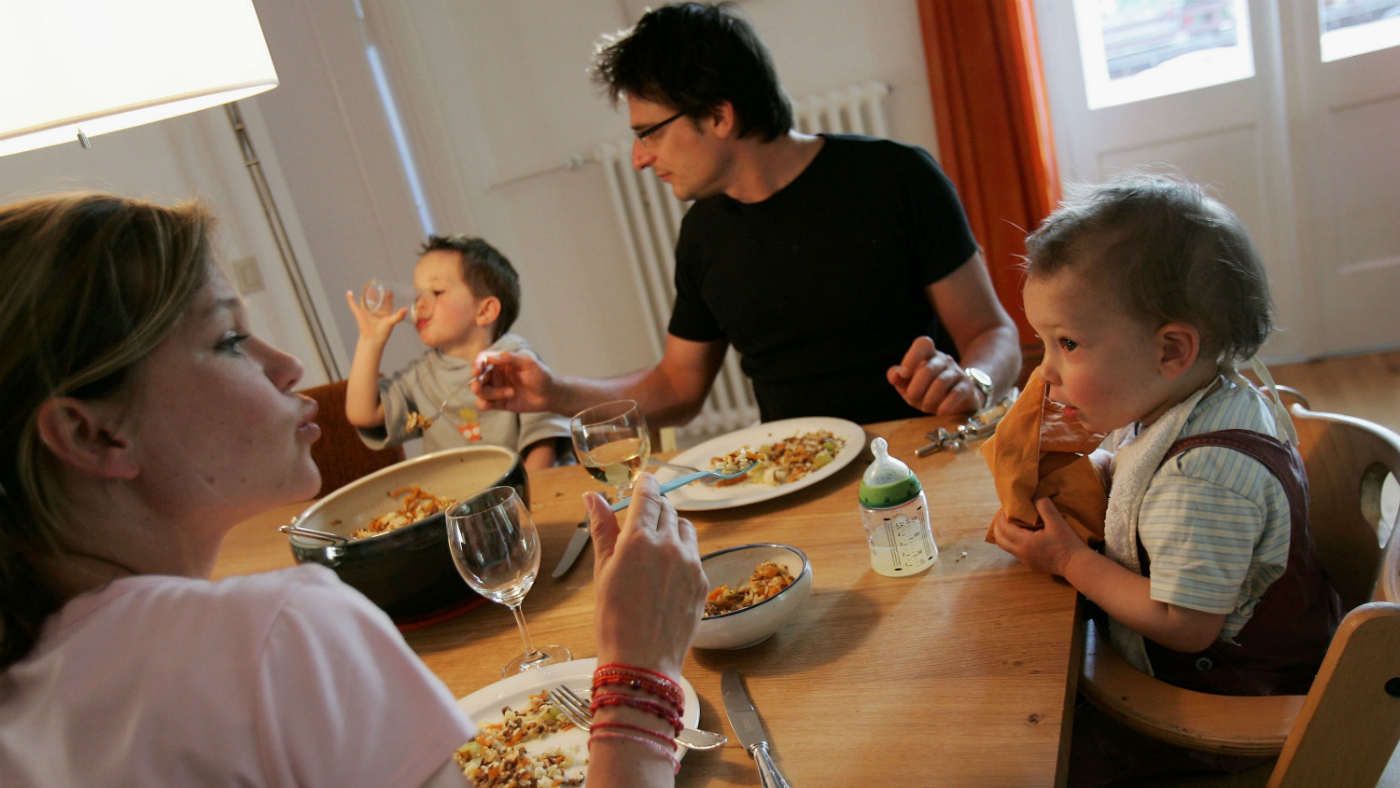Why is the government changing child tax credits and how will it affect families?
Critics say limiting child tax credits to two children will push 200,000 children into poverty

A free daily email with the biggest news stories of the day – and the best features from TheWeek.com
You are now subscribed
Your newsletter sign-up was successful
Families will only receive child tax credits for two children from this week as changes to the welfare system go into effect.
It is part of a £12bn programme of social security cuts the government argues will make the system "fairer".
However, critics say the measures punish children and predict the child poverty rate will rise by ten per cent by 2020.
The Week
Escape your echo chamber. Get the facts behind the news, plus analysis from multiple perspectives.

Sign up for The Week's Free Newsletters
From our morning news briefing to a weekly Good News Newsletter, get the best of The Week delivered directly to your inbox.
From our morning news briefing to a weekly Good News Newsletter, get the best of The Week delivered directly to your inbox.
What are the changes?
At the moment, families receive a credit of up to £2,780 for each child they have depending on household income. This changes on Thursday 6 April, when it will only apply to the first two children.
From autumn 2018, these limits will apply to all households making a new claim for Universal Credit, which is being rolled out to replace tax credits, even if the additional children were born before the changes went into effect.
It means any child born after 6 April into families where there are already at least two other children will no longer be counted in benefit payments, the BBC says.
A free daily email with the biggest news stories of the day – and the best features from TheWeek.com
Basic child benefit will not be affected.
Why has the government introduced the limit?
It is part of the Tories' programme of welfare reforms intended to tackle the deficit and reduce spending.
According to the government's impact assessment, the current system "removes the need for families supported by benefits to consider whether they can afford to support additional children… This is not fair to families who are not eligible for state support or to the taxpayer."
Implementing the cuts could save the taxpayer up to £2bn per year by 2020/21, the report estimates, while the Department for Work and Pensions says that if families make choices "based on their circumstances rather than on taxpayer subsidies", low-income households will become more financially secure.
Will it encourage smaller families?
The government hopes the change will persuade poorer families to have fewer children, although The Guardian reports "the government's own impact assessment says there is no evidence to suggest this is likely".
While the impact assessment says that "in practice people may respond to the incentives that this policy provides and may have fewer children," it goes on to say: "There is no evidence currently available on the strength of these effects."
It does, however, mention a study by the Institute for Fiscal Studies that found a relationship between lower benefits for children and lower rates of childbearing among welfare recipients.
How will it impact children from low-income families?
According to the Guardian, the impact of the new measures will be drastic: "A family whose third child is born before midnight on Wednesday could be up to £50,000 better off over 18 years than one whose child is born on Thursday," it says.
Deven Ghelani, director of benefits system consultants Policy in Practice, said children would ultimately be the ones to suffer from the changes.
The group estimates that 266,000 more children will be living in poverty by the end of the current parliament as a result of the reforms, a ten per cent rise, with another 609,000 children whose families are currently just managing to stay afloat will be put in a more precarious position.
It also said the reform will undermine the purpose of child tax credits. "Child Tax Credits were originally intended to provide financial support to low earners with larger families, yet those who have a third child after April will need to find £1,737 to make up the difference," it said.
What has the response been?
Shadow welfare secretary Debbie Abrahams called it a "new low" for the government, while the Scottish National Party's Alison Thewliss said the cuts demonstrated that Theresa May's promise to help "just about managing" families was "empty rhetoric".
The Child Poverty Action Group said benefits available to non-working families are already limited and therefore working families would be hardest hit by the changes.
A working household with three children could "miss out on up to £2,780 per year as a result of the cut," it added.